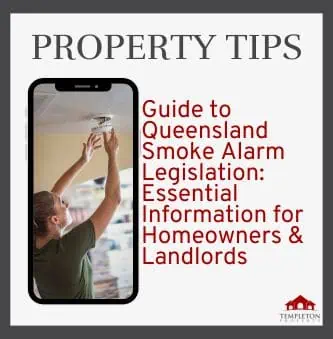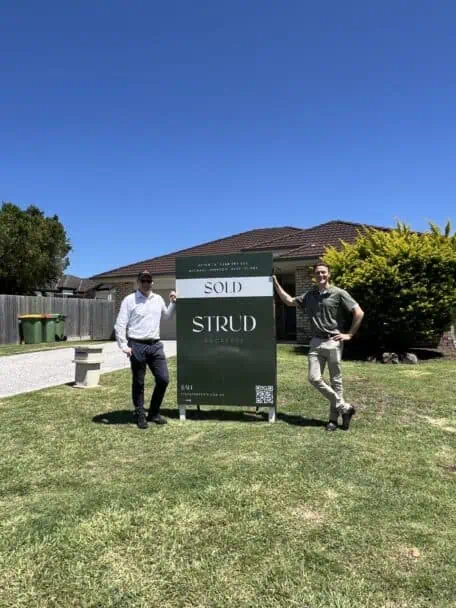Queensland Smoke Alarm Legislation
The Queensland Government passed the Fire and Emergency Services (Domestic Smoke Alarms) Amendment Bill 2016. This bill commences on 1 January 2017 and is to be phased in over a 10-year period. From commencement, if an existing smoke alarm needs to be replaced, it is to be replaced by a photoelectric smoke alarm.
The amendments have been introduced following a coronial inquest on 28 November 2014 in which the State Coroner made two broad recommendations:
- That legislative amendments be made to mandate the installation of photoelectric and interconnected smoke alarms in every bedroom, between areas containing bedrooms and the rest of the dwelling, in any hallway servicing bedrooms and in any other storey of a domestic dwelling. For new residences, the Coroner recommended that the smoke alarms be hard-wired, while in existing residences, smoke alarms may be hard-wired or powered by a 10-year lithium battery;
- Queensland Fire and Emergency Services (QFES) conduct enhanced awareness campaigns, including promoting the development of practiced escape plans.
QFES supports these measures as the best practice for using smoke alarms. Evidence suggests that each component of these revised smoke alarm provisions will reduce the risk of harm to residents in a house fire. QFES emphasised the importance of this legislation with their slogan: “Plan to Survive — Upgrade your smoke alarms today.”
The Bill:
Requires that smoke alarms that comply with Australian Standard 3786-2014 be installed in domestic dwellings and that the smoke alarms be photoelectric, interconnected and powered by an enduring power source (hard-wired or 10 year lithium battery); and
Requires that smoke alarms be installed in locations as prescribed in the Building Fire Safety Regulation 2008 for existing domestic dwellings and the Building Regulation 2006 for new dwellings.
These new provisions will apply to domestic dwellings where an application for a building approval is made after 31 December 2016 and the building work is a substantial renovation.
From 31 December 2021, these new requirements were applied to existing residential properties where a Contract of Sale or Tenancy is entered into or renewed.
These amendments also require that owners of residential properties, including landlords, upgrade their smoke alarms under the amended requirements within 10 years after the manufacture date or if they fail when routinely tested.
In Summary
These changes commenced on the 1 January 2017 and are to be phased in over a 10-year period. From commencement, if an existing smoke alarm needs to be replaced, it is to be replaced by a photoelectric smoke alarm. Having a photoelectric smoke alarm installed is the safest option to ensure that in case of an emergency, everyone residing in that property has time to escape and get to safety.
New or substantially renovated homes will need to be compliant with the new smoke alarm provisions.
After five years from commencement, all dwellings sold or leased must be in compliance when a Tenancy Agreement or contract of Sale is entered into.
All other homes will be required to comply within 10 years of commencement.
From 1 January 2017
- When replacing smoke alarms, they must be of a photoelectric type which complies with Australian Standard (AS) 3786-2014.
- Existing smoke alarms manufactured more than ten years ago must be replaced.
- Property sellers must lodge a Form 24 with the Queensland Land Registry Office stating that they have met the requirements of the new smoke alarm legislation.
- The development approval process for new dwellings and substantial renovations will ensure that building works approved after this date will bring dwellings into compliance with the new laws that will apply to existing dwellings from 1 January 2022.
From 1 January 2022
- When a property is sold, leased, or an existing lease is renewed
Smoke alarms in the dwelling must:
i) be photoelectric (AS 3786-2014); and
ii) not also contain an ionisation sensor; and
iii) be less than 10 years old; and
iv) operate when tested; and
v) be interconnected with every other smoke alarm in the dwelling so all activate
together.
- Smoke alarms must be installed on each storey:
i) in each bedroom; and
ii) in hallways that connect bedrooms and the rest of the dwelling; or
iii) if there is no hallway, between the bedrooms and other parts of the storey; and
iv) if there are no bedrooms on a storey at least one domestic smoke alarm must
be installed in the most likely path of travel to exit the dwelling.
- Smoke alarms must be hardwired or powered by a non-removable 10-year battery
Where practicable smoke alarms must be placed on the ceiling. Smoke alarms must not be placed:
i) within 300mm of a corner of a ceiling and a wall;
ii) within 300mm of a light fitting;
iii) within 400mm of an air-conditioning vent;
iv) within 400mm or the blades of a ceiling fan.
From 1 January 2027
By January 1, 2027, all private homes, townhouses, and units must have interconnected photoelectric smoke alarms, and registered caravans and motorhomes must have photoelectric smoke alarms installed.
Legislation introduced on 1 January 2017 requires all smoke alarms to comply with Australian standard 3786-2014 and requires pre-existing smoke alarms to be replaced with interconnected smoke alarms.
Smoke alarm laws (as above) will apply to all properties in Queensland.
While Landlords effectively have 5 years to make their properties fully compliant with the new Legislation, it is recommended that this be instigated sooner to avoid delay in the future
Maintaining smoke alarms
Landlords are responsible for testing, cleaning, and, if necessary, replacing smoke alarms within 30 days before new tenants move in or during lease renewals. Proving a working smoke alarm for tenants is not just the right thing to do; it’s the law.
Some landlords or real estate agencies may outsource smoke alarm maintenance, which licensed electricians typically perform. During this time, it’s also important to assess whether they are still compliant with current legislation.
Installing smoke alarms is not a one-time task; regular maintenance is required for existing private homes, townhouses, and units. In new builds, this legislation must be followed strictly to ensure the property is compliant and, more importantly, safe for tenants. Maintenance guidelines are typically included in lease contracts, specifying that tenants must take care of smoke alarms. This includes regular dusting or vacuuming and checking to ensure they are functioning properly. Dust can interfere with the sensors, so it’s important to conduct this maintenance frequently to ensure optimal performance.
Although smoke alarms today are generally more reliable and can last longer than older models—many of which have a removable 10-year battery—it remains crucial for those responsible to maintain them regularly. Smoke alarms should be replaced every 10 years from their manufacture date. If this has not been done recently, it may be time to upgrade your smoke alarms
Main Source: Nicole Garnham, Real Estate Dynamics 2016
If you are considering purchasing a home or investment property in Brisbane or South East Queensland and would like the assistance of an experienced Brisbane Buyer’s Agent that can help you find the perfect property, that meets all your requirements for the right price, please don’t hesitate to contact us.
Feel free to contact us via email admin@templetonproperty.com.au or call 0418 159 993.
We look forward to hearing from you.
Sam Price, Buyer’s Agent and Director

